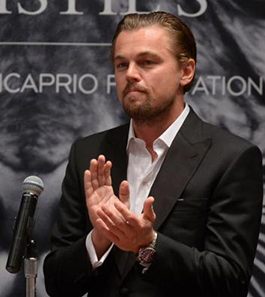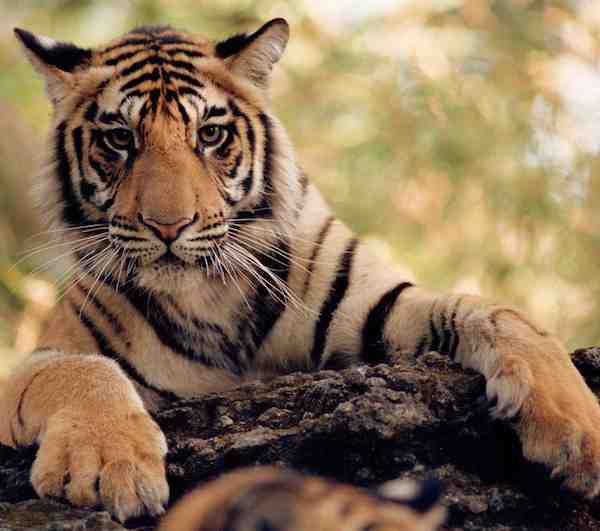 On the third anniversary of the historic Global Tiger Summit, the Leonardo DiCaprio Foundation has awarded a $3 million grant to the World Wildlife Fund, WWF, for a bold initiative to help Nepal double its wild tiger numbers by 2022 – the next Chinese Year of the Tiger.
On the third anniversary of the historic Global Tiger Summit, the Leonardo DiCaprio Foundation has awarded a $3 million grant to the World Wildlife Fund, WWF, for a bold initiative to help Nepal double its wild tiger numbers by 2022 – the next Chinese Year of the Tiger.
Previous support from the Hollywood superstar and his Foundation is already showing major results, growing the number of tigers in the Terai’s Bardia National Park from an estimated 18 to 50 tigers.
The grant represents the first funds awarded from the successful Christie’s 11th Hour Charity Auction in May, created by DiCaprio, which raised a record $38.8 million for conservation in a single night.
DiCaprio has long been a passionate advocate for the environment and joined forces with WWF beginning in 2010 to launch Save Tigers Now, a global campaign to raise political, financial and public support to save tigers in the wild. The grant will bolster WWF’s work with the government of Nepal and local communities in Nepal’s Terai Arc landscape to strengthen anti-poaching patrols, protect core areas for tiger breeding, restore critical habitat corridors, and continuously monitor tiger populations.
“Leonardo DiCaprio’s foundation is all about delivering real results for conservation on the ground and empowering local communities; nowhere is that more evident than in Nepal,” said Carter Roberts, President and CEO of WWF-US. “The numbers speak for themselves and we are grateful for our partnership.”
Nepal is on target to become one of the first tiger range countries to achieve the 2010 Global Tiger Summit’s goal of doubling wild tigers by the next Year of the Tiger in 2022. The Terai Arc Landscape of Nepal, where the grant will be used, is 9,000 square miles and includes protected areas that are critical tiger, rhino and elephant habitat. The densely populated region is also home to nearly seven million people who depend on its natural resources for their livelihoods.
 The grant will allow park rangers to use sophisticated monitoring tools in conjunction with community policing and intelligence-gathering to tackle poaching. Basic park infrastructure, such as guard posts, will also be expanded and corridors between parks will be strengthened to give key species the freedom to roam and help grow new tiger populations across the Terai.
The grant will allow park rangers to use sophisticated monitoring tools in conjunction with community policing and intelligence-gathering to tackle poaching. Basic park infrastructure, such as guard posts, will also be expanded and corridors between parks will be strengthened to give key species the freedom to roam and help grow new tiger populations across the Terai.
“Protecting a top predator like the tiger helps keep forests and grasslands intact, and ensures that other species like rhinos and elephants can thrive.” said Justin Winters, the Executive Director of the Leonardo DiCaprio Foundation. “The most impressive part of this project – and the key to its success so far – is the true collaboration between WWF, the Nepal government and the local communities. Finding solutions that protect tigers and benefit local people is the only way to ensure long term success.”
WWF and its partners will also use the grant to help local communities benefit from conservation by creating income-generating activities through tourism, handicrafts and organic vegetable production. The grant will also support insurance funds to help families cope with the loss of livestock to predators.



















